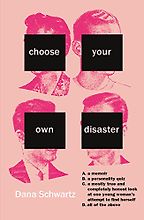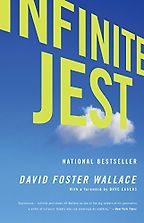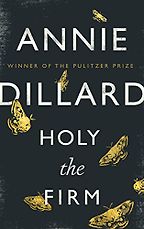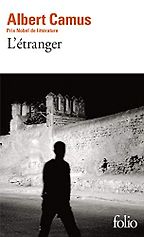CHOOSE YOUR OWN DISASTER BY DANA SCHWARTZ
Choose Your Own Disaster by Dana Schwartz is an example of an innovatively-structured book that particularly benefits from the ebook format. It’s a sharp and entertaining memoir of the author’s misspent twenties in the form of a personality test cum choose-your-own-adventure book. Rather than turning to page 264, then page 45, then page 178, one can simply click on the links and be whisked on to the next stage; it lends the reading experience a computer-game feel. It’s a lot of fun.
WUHAN DIARY BY FANG FANG
Wuhan Diary: Dispatches from a Quarantined City is Chinese author Fang Fang’s chronicle of her daily life as Covid-19 emerged in her home city in early 2020. Her daily posts—made originally via Chinese social media—were rapidly translated into English and turned into a ebook. In November 2020, a print version of Wuhan Diary appeared, but as is often the case with time-sensitive subjects, ebooks are quicker to turn around, so you can be reading months earlier if you’re happy with the digital format.
INFINITE JEST BY DAVID FOSTER WALLACE
Another great time to turn to an ebook is when you’re reading a doorstopper. It’s too tough on the wrists to hold the print book up when you’re reading it in bed and it’s not a lot of fun carting it around town either.
Infinite Jest is David Foster Wallace’s novel about tennis, drug abuse and much more, which novelist Chad Harbach called “the major American novel of the past 25 years.” Two reasons we’ve put it on our list of books that are easier to read as ebooks. Firstly, it is large: more than 1,000 pages, but when it’s on your Kindle, you can still fit it in your pocket. Another reason is that Infinite Jest has endnotes, not footnotes, so you have to do a lot of flicking back and forth. It’s a lot quicker to flip back and forth to endnotes on a Kindle. Simply click the hyperlink, leap forward to the relevant endnote, then leap back to your place in the text.
HOLY THE FIRM BY ANNIE DILLARD
Another key benefit of ebooks is ease of highlighting and organising your notes. Cal Flyn, Five Books deputy editor and herself an author, recommends Holy the Firm, by Annie Dillard, as a case study of how useful this can be:
“Annie Dillard, the American nature writer, is one of my favourite authors, having the most wonderfully erudite, transcendental style—every sentence is a flight of literary prowess—and so my e-book copies of her books are absolutely grafittied with electronic highlighter pen. Clicking through to my Kindle ‘notebook’, I find them all neatly gathered and colour-coded—exactly the sort of thing I don’t have the discipline to keep up otherwise. These are things I wouldn’t want to forget: “There are two kinds of nun, out of the cloister or in,” she writes in Holy the Firm. “You can serve or you can sing, and wreck your heart in prayer”. It’s a beautiful book, and I’m glad I can refresh my memory of its brightest parts so easily. The same goes for her most famous work, Pilgrim at Tinker Creek (“This is the now, the flickering, broken light…”). She’s an artist. I can’t recommend them enough.”
L’ETRANGER BY ALBERT CAMUS
Ebooks are great for learning to read in a foreign language and, as a good book to start out with, Five Books contributing editor Ben King has selected L’Etranger, by the great French existentialist author Albert Camus. Translators are constantly making difficult decisions about how to render words in English—including, even, L’Etranger’s opening lines—so it’s almost always better to read a great work of literature in the original, if you can.
Normally, when you embark on reading books in a language you’ve studied, you need a dictionary to hand for the many new words you come across, which makes the going prohibitively slow and boring. With ebooks, you can have a dictionary open permanently. Whenever you come across a word, you simply press it and the translation—along with the full dictionary entry, to check idiomatic usage etc—appears instantly.
If you studied French at school, there’s no reason not to have a go at L’Etranger. It’s reasonably short and the French is reasonably simple. Impress yourself!
MIDDLEMARCH BY GEORGE ELIOT
Mary Ann Evans, who went by the pen name George Eliot, was not only a great novelist but also a fine philosopher, as American philosopher Rebecca Goldstein put it in her interview with us on the best philosophical novels. Not surprisingly, Middlemarch has been recommended multiple times on Five Books, whether as one of the very best novels ever written in English, or as one of the most helpful books for insight into the ethical dilemmas and pressures of our daily lives. For these reasons, deputy editor Cal Flyn chose to publish it for the Five Books Essentials range, though it’s also long (800+ pages), so also quite a good one to read as an ebook for convenience purposes.
ON LIBERTY BY JOHN STUART MILL
OK, it’s true that it’s not strictly necessary to read John Stuart Mill’s On Liberty as an ebook, but we’ve included it because it is the first ebook published by Five Books. Our deputy editor Cal Flyn, who runs the ‘Five Books Essentials’ publishing project, chose it because it’s the book that’s been most frequently recommended by experts on Five Books. For the ebook, she’s written a really nice introduction, pulling together some of the reasons why it’s considered so important. And it remains timely: as the democratic world continues to impose heavy restrictions on citizens’ freedoms to prevent the spread of disease, On Liberty’s arguments about the legitimate extent of government action may take on a fresh importance.
February 18, 2020. Updated: February 18, 2021
Five Books aims to keep its book recommendations and interviews up to date. If you are the interviewee and would like to update your choice of books (or even just what you say about them) please email us at [email protected]
Five Books interviews are expensive to produce. If you've enjoyed this interview, please support us by donating a small amount.










